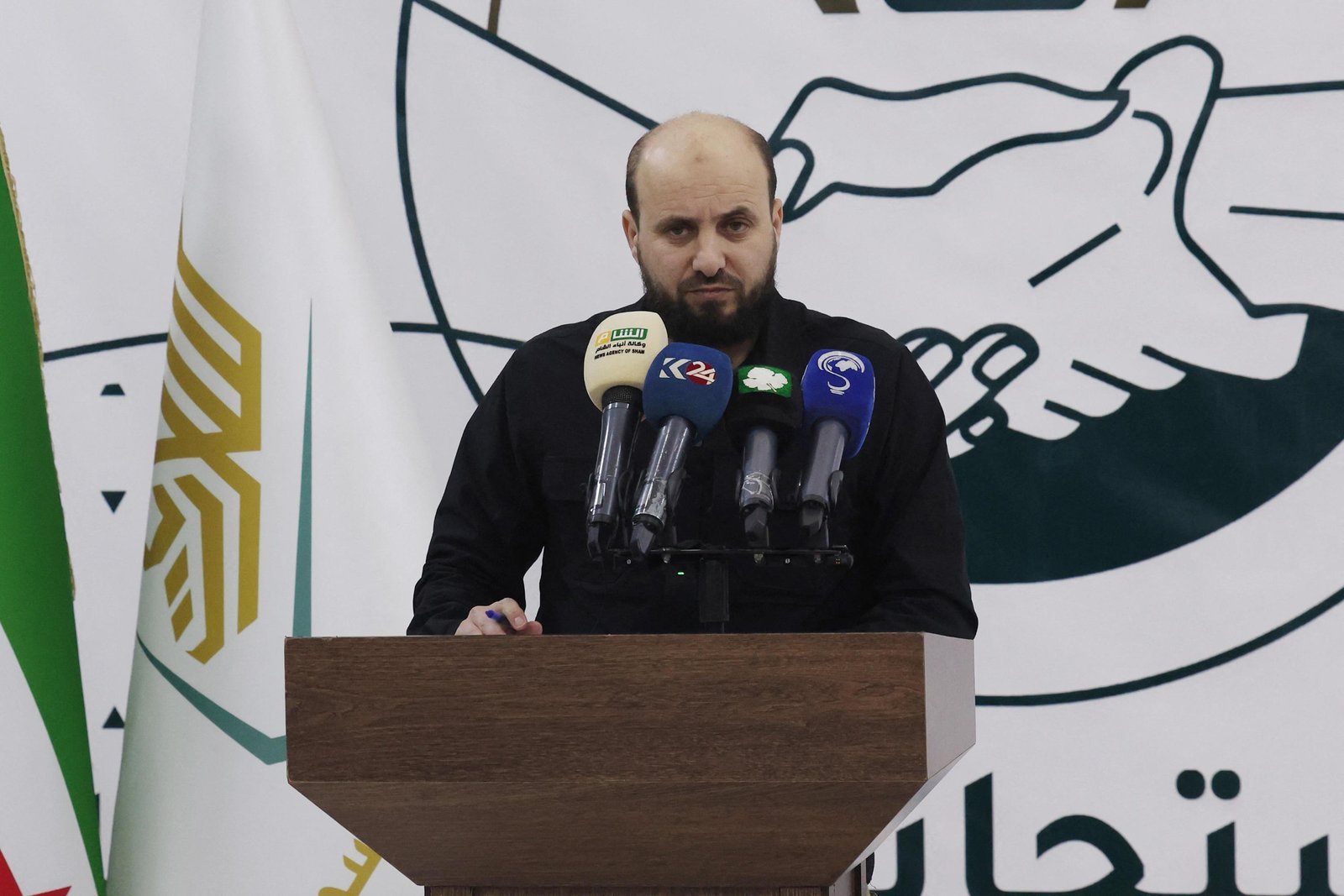Mohammed Al-Bashir Appointed Prime Minister of Syria’s Interim Government
Mohammed Al-Bashir, a prominent rebel leader who played a key role in the overthrow of Bashar al-Assad’s regime, has been appointed as the Prime Minister of Syria's Interim Government. Al-Bashir will serve in this capacity until March 1, 2025, according to a televised address he gave on Tuesday.
Mohammed Al-Bashir Appointed Prime Minister of Syria’s Interim Government
Mohammed Al-Bashir Appointed Prime Minister of Syria’s Interim Government
Mohammed Al-Bashir, a prominent rebel leader who played a key role in the overthrow of Bashar al-Assad’s regime, has been appointed as the Prime Minister of Syria's Interim Government. Al-Bashir will serve in this capacity until March 1, 2025, according to a televised address he gave on Tuesday.
Before his appointment, Al-Bashir was in charge of the Idlib province, which has long been under the control of rebel forces, notably the Hayat Tahrir al-Sham (HTS) group, a prominent Syrian jihadist faction. This group has been a significant player in the Syrian Civil War, and their control over Idlib has been a focal point in the ongoing conflict. Following the formation of the interim government, Al-Bashir will head a small cabinet that will lead the country through a transitional phase.
Al-Bashir's rise to power comes in the context of ongoing turmoil in Syria. The region has been embroiled in a brutal civil war since 2011, with numerous factions vying for control. The fall of Bashar al-Assad’s government, a goal pursued by several rebel groups, including HTS, has been a long-standing aspiration for the opposition forces.
Idlib’s Role in the Syrian Conflict
Before the fall of the Assad regime, the Idlib province had been a hotbed of insurgent activity and was governed by a coalition of rebel factions. The HTS emerged as the dominant force in the region and has since become a key player in the struggle against Assad. Their control over Idlib is seen as a symbolic victory for the opposition, as the province remains one of the last strongholds not controlled by Assad’s forces.
The Syrian Salvation Government, a coalition of rebel factions led by HTS, has governed the region in parallel with the Assad regime’s control over most of the country. While Assad's forces, backed by Russia and Iran, continue to hold sway over much of Syria, Idlib remains an important focal point for the opposition.
Al-Bashir’s Leadership
Al-Bashir’s leadership in the interim government is expected to mark a significant step towards establishing a political alternative to Assad’s regime. While details on the composition of his cabinet are limited, Al-Bashir’s appointment reflects the ongoing efforts by the opposition to form a government that could potentially gain international recognition as a legitimate alternative to the Assad regime.
Despite Al-Bashir’s influence among opposition forces, the situation in Syria remains volatile. The appointment has already sparked mixed reactions, both domestically and internationally. Pro-Assad factions are likely to oppose the formation of a rival government, and there are concerns that the situation in Idlib could escalate further.
The Future of Syria
As Syria continues to grapple with its civil war, the formation of an interim government under Al-Bashir’s leadership represents a significant shift in the opposition’s strategy. However, questions remain about the stability of this new government and whether it can effectively govern a fractured country. With Assad's forces still in control of much of Syria, the path to a lasting peace remains uncertain.
The international community, including Western powers and regional players, will likely play a critical role in shaping the future of Syria. The interim government led by Al-Bashir may seek diplomatic recognition from these countries, but its success will depend on its ability to unify the various factions in the country and present a viable alternative to Assad’s government.
As the situation continues to unfold, Al-Bashir’s leadership will be tested in the coming months, with the Syrian people’s hopes for peace and stability hanging in the balance.










